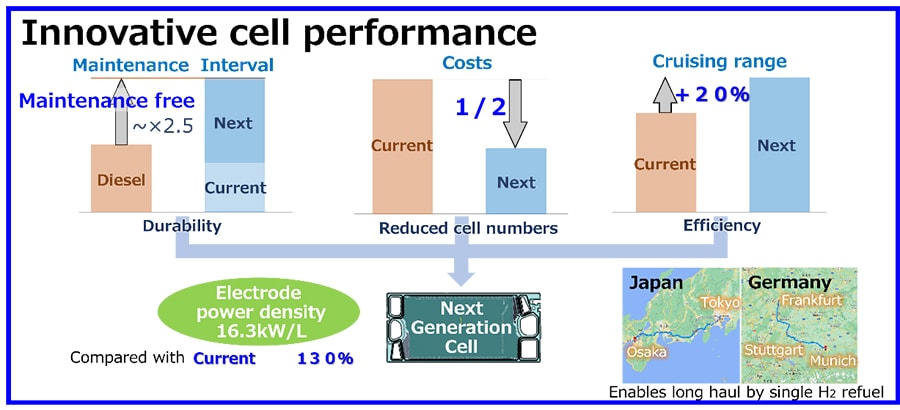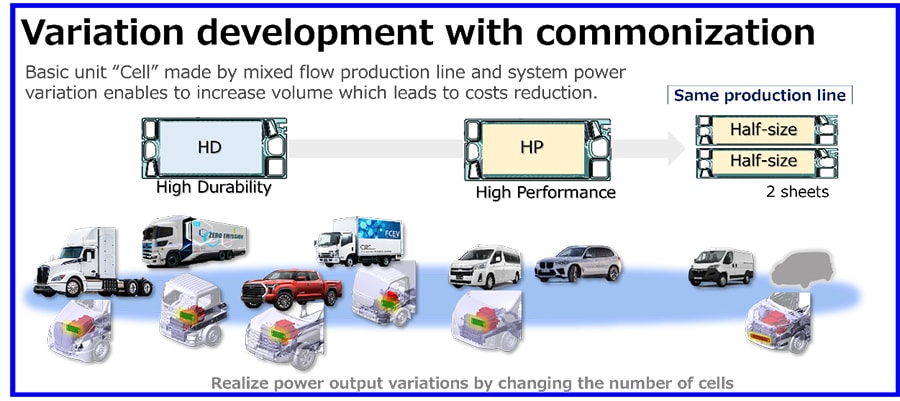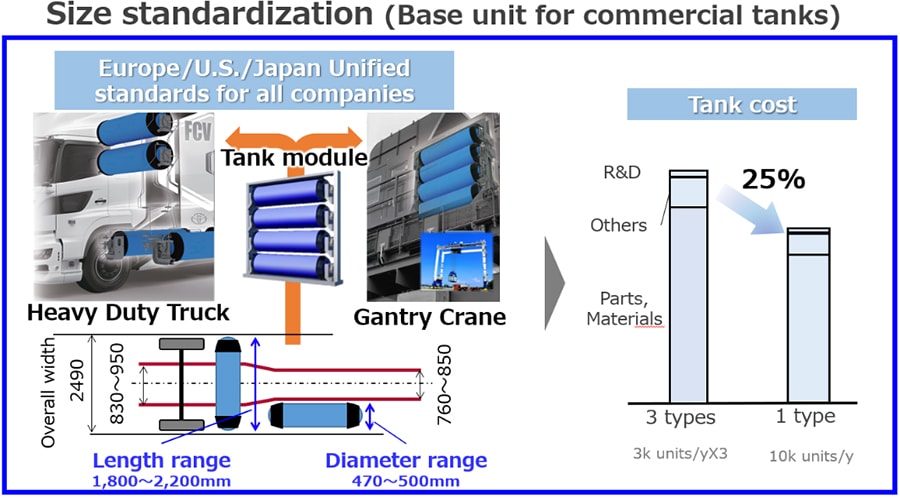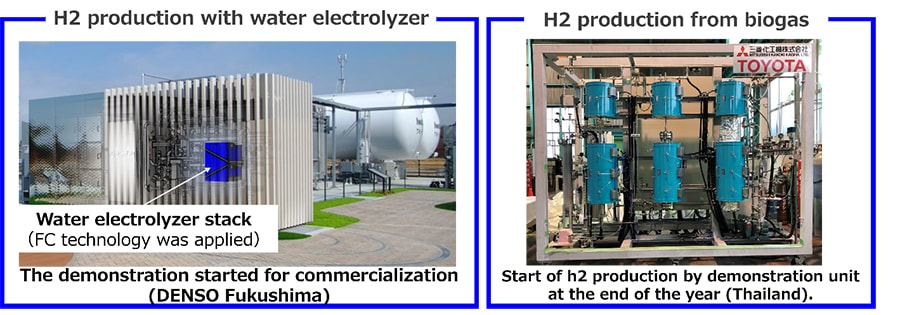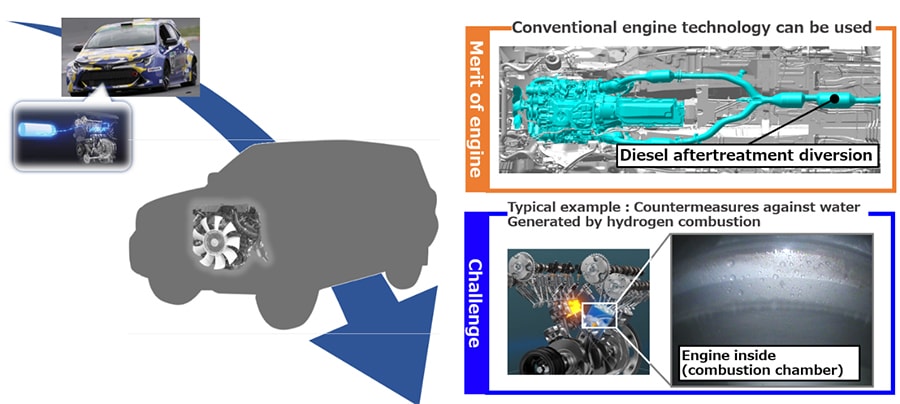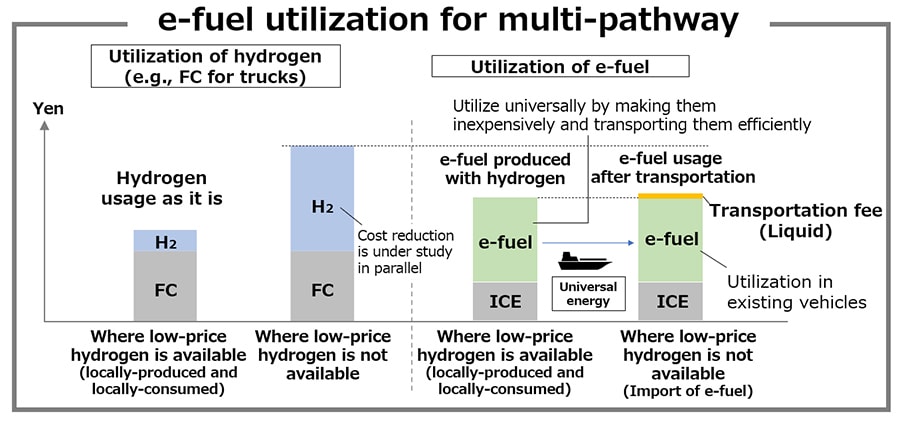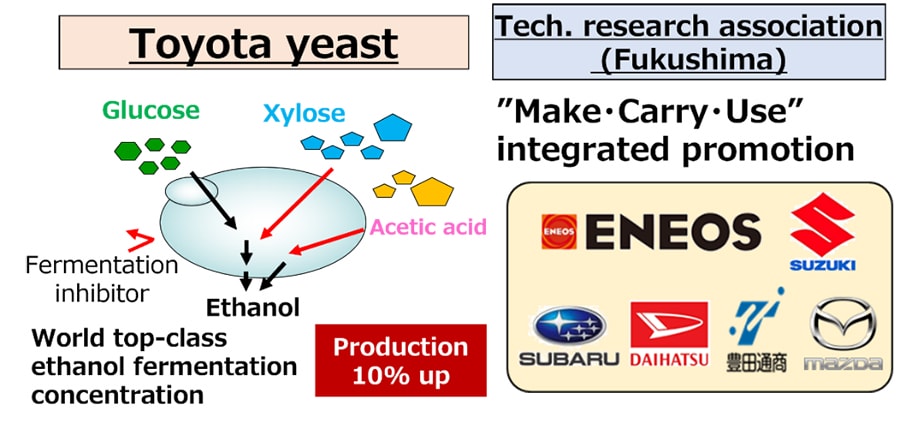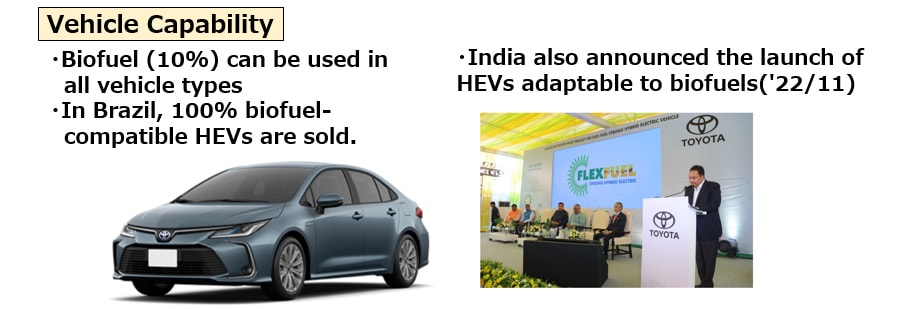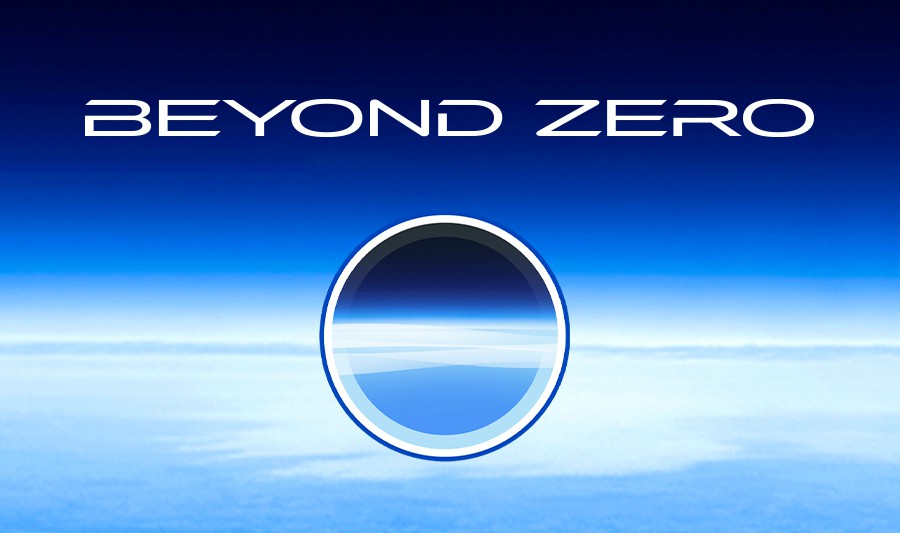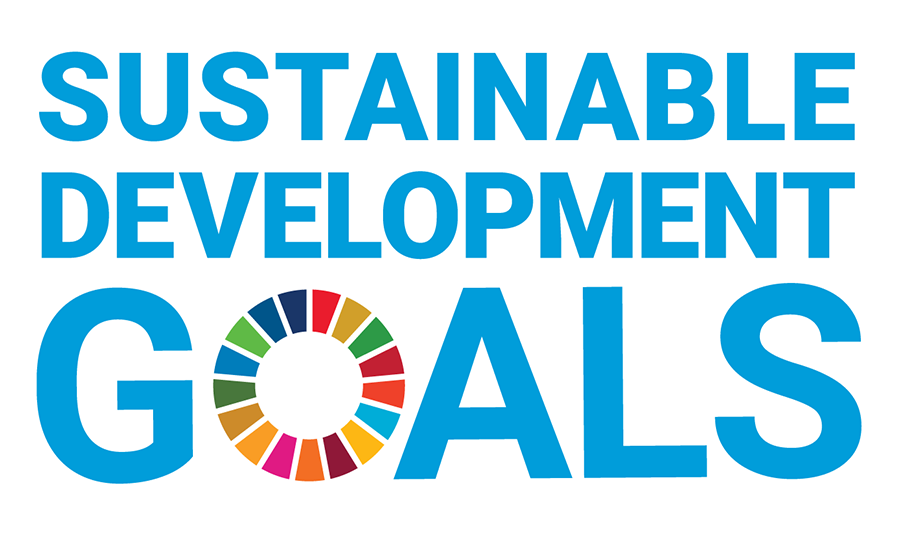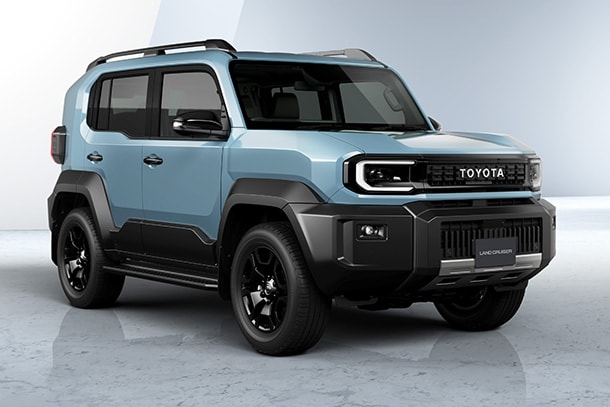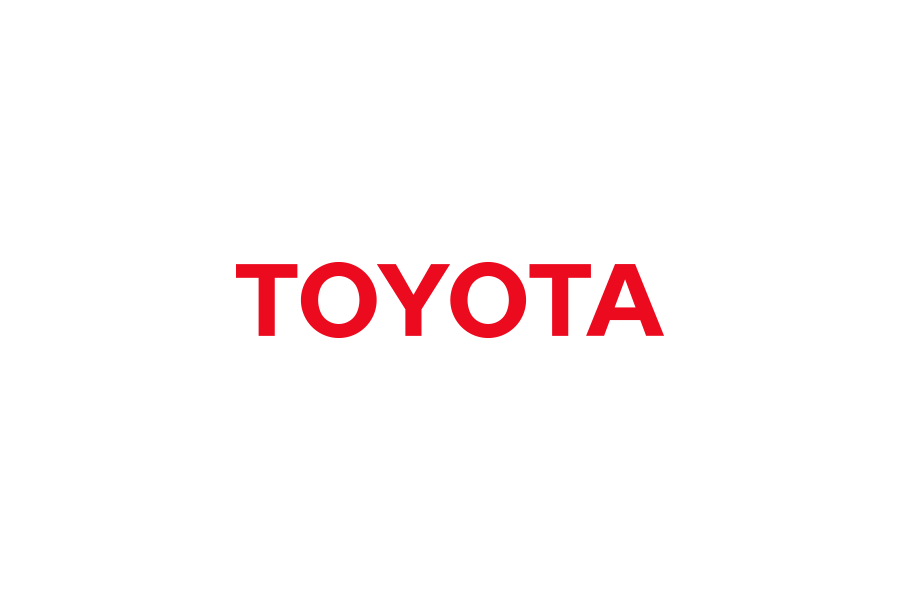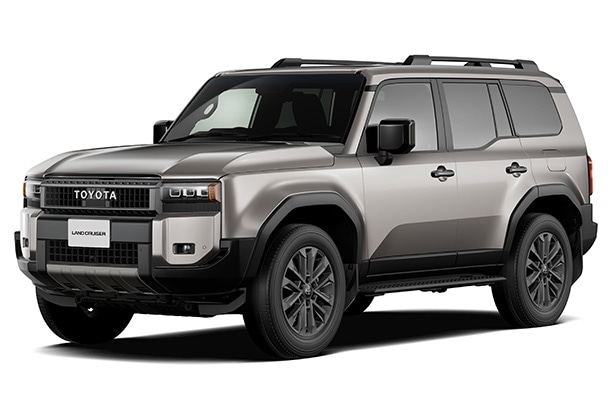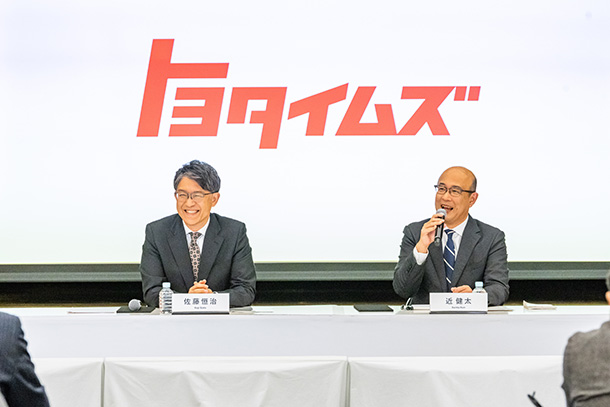Jun. 13, 2023
Electrified Technologies - Hydrogen, Carbon neutral (CN) fuel
Table of contents
- Toyota's Technology Strategy and Car Manufacturing Direction
- Next Generation Battery EV Strategy
- Hydrogen Business Strategy
Hydrogen
An innovative next-generation FC system aims to expand demand for hydrogen, especially for commercial use.
As Toyota moves forward in reducing CO2 emissions with the aim of achieving carbon neutrality, Toyota positions hydrogen as an important fuel in its efforts to reduce CO2 emissions with the aim of achieving carbon neutrality.
To contribute to the creation of a "hydrogen society" through the promotion of hydrogen utilization, we are working with various industry partners in the areas of producing, transporting, and using hydrogen. We are also developing and demonstrating fuel cell electric vehicles (FCEVs) such as passenger and commercial trucks and buses, FC stationary generators and hydrogen engine vehicles with internal combustion engines.
- Next-generation FC System
- We are developing innovative next-generation fuel cells that deliver industry-leading performance for commercial use (long life, low cost, and low fuel consumption), aiming for commercialization in 2026.
- With these cells, we are pursuing easier maintenance than diesel engine vehicles and 1/2 the cost of a stack (compared to current models). We also expect to improve the cruising range by 20% (compared to the current range).
- Large Commercial Tanks
- We are taking on the standardization of tanks for large commercial vehicles, which are expected to consume hydrogen on a large scale, to accelerate the expansion of hydrogen demand. We aim to reduce manufacturing costs by 25% by unifying the tank standards of European, U.S., and Japanese companies and consolidating their quantities.
- We are also developing liquid hydrogen tanks for large commercial vehicles.
- Multi Hydrogen Tank (Concept)
- We are developing hydrogen tanks designed for ease of installation and compatibility with various types of vehicles, from large to small. It will be possible to convert existing vehicles to FCEVs and hydrogen engine vehicles.
- Hydrogen production: Production by water electrolysis or from biogas
- We have developed a new water electrolyzer that produces hydrogen by electrolyzing water, applying the fuel cell stack and cell technologies developed for the Mirai, and started its public trials at the DENSO Fukushima plant.
- We have started an initiative to produce hydrogen from biogas derived from local chicken manure and food waste in Thailand by the end of 2023 in collaboration with Mitsubishi Kakoki Corporation and Toyota Tsusho Corporation.
- Hydrogen engine vehicle: Trial vehicle (license plate number already obtained; can be driven on public roads)
- We will accelerate development of hydrogen engine vehicles for commercialization as a new option in contributing to carbon neutrality.
- We will promote consideration of the entire vehicle by incorporating an exhaust purification system that utilizes diesel engine vehicle technology, etc.
Carbon neutral (CN) fuel
We will work with various partners to promote the use of biofuels, which will lead to CN for vehicles owned by customers.
To achieve carbon neutrality, it is important not only to promote the spread of electrified vehicles, especially in new car sales, but also to reduce CO2 emissions during driving of vehicles already owned by customers who use them in their daily lives.
To meet the needs of diverse vehicles, regions, and customers, we must offer a variety of energy options. We are working with various partners across industry boundaries to reduce CO2 emissions and public trials of hydrogen, synthetic fuels, and bioethanol fuels based on electricity derived from renewable energy sources, from raw material procurement through the manufacturing process.
- e-fuel
- In regions where hydrogen is inexpensive, hydrogen is produced and consumed locally using FC as-is. In regions where hydrogen is expensive, we will examine the potential for total cost advantages by producing and transporting e-fuel to regions where production costs are low.
- Biofuels
- In July 2022, seven private companies including Toyota established the Research Association of Biomass Innovation for Next Generation Automobile Fuels to promote research of a production technology structure for second generation bioethanol fuel.
- We are expanding use in emerging countries by promoting deployment of the right vehicle in the right place at the right time, including the introduction of biofuel (ethanol)-compatible vehicles.
"Achieving zero, and adding new value beyond it"
As part of efforts to pass our beautiful "Home Planet" to the next generation, Toyota has identified and is helping to solve issues faced by individuals and overall society, which Toyota calls "Achieving Zero," hoping to help reduce the negative impacts caused by these issues to people and the environment to zero. Additionally, Toyota is also looking "Beyond Zero" to create and provide greater value by continuing to diligently seek ways to improve lives and society for the future.
- About Beyond Zero
- https://global.toyota/en/mobility/beyond-zero/
Toyota Motor Corporation works to develop and manufacture innovative, safe and high-quality products and services that create happiness by providing mobility for all. We believe that true achievement comes from supporting our customers, partners, employees, and the communities in which we operate. Since our founding over 80 years ago in 1937, we have applied our Guiding Principles in pursuit of a safer, greener and more inclusive society. Today, as we transform into a mobility company developing connected, automated, shared and electrified technologies, we also remain true to our Guiding Principles and many of the United Nations' Sustainable Development Goals to help realize an ever-better world, where everyone is free to move.
- SDGs Initiatives
- https://global.toyota/en/sustainability/sdgs/
